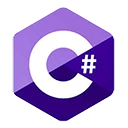Event handling is a fundamental concept in C# programming, allowing you to create interactive applications that respond to user actions. In this guide, you'll learn about events, delegates, and how to handle them to create responsive programs.
What is an Event?
An event is a specific occurrence within a program that can be detected and handled. It can be triggered by various actions, such as a button click, a keypress, or a mouse movement. Events are a core mechanism for creating interactive applications.
Delegates and Event Handlers
Delegates are C# constructs that allow you to create references to methods. They are used to encapsulate and pass methods as parameters. In the context of events, delegates are used to define event handlers - methods that are called when an event occurs.
Example of defining an event and event handler:
using System;
class Program
{
// Define an event
public event EventHandler MyEvent;
public void RaiseEvent()
{
Console.WriteLine("Event raised.");
// Check if there are subscribers (event handlers)
MyEvent?.Invoke(this, EventArgs.Empty);
}
static void Main()
{
Program program = new Program();
// Subscribe to the event with an event handler
program.MyEvent += (sender, e) => {
Console.WriteLine("Event handled.");
};
// Raise the event
program.RaiseEvent();
}
}
Built-in Events
C# provides numerous built-in events for common user interactions, such as button clicks, keypresses, mouse movements, and more. You can handle these events to create interactive user interfaces.
Example of handling a button click event:
using System;
using System.Windows.Forms;
class Program
{
[STAThread]
static void Main()
{
Application.EnableVisualStyles();
Application.SetCompatibleTextRenderingDefault(false);
Form mainForm = new Form();
Button myButton = new Button();
myButton.Text = "Click Me!";
myButton.Click += (sender, e) => {
MessageBox.Show("Button Clicked!", "Event Handling");
};
mainForm.Controls.Add(myButton);
Application.Run(mainForm);
}
}
Custom Events
You can also create custom events by defining your own event handlers and raising events when specific conditions are met in your program. This allows you to design interactive behavior tailored to your application's needs.
Conclusion
Event handling is a critical skill for creating interactive and responsive programs in C#. You've learned about events, delegates, and how to handle them to create user-friendly applications. Whether you're developing desktop applications, web applications, or mobile apps, event handling is a universal concept.
Practice creating and handling events in your C# programs to make them more interactive and engaging. As you continue your programming journey, you'll explore more complex event scenarios and discover how events drive user interactions in various types of applications.

